Coronavirus Lockdown: Life in China during the Outbreak
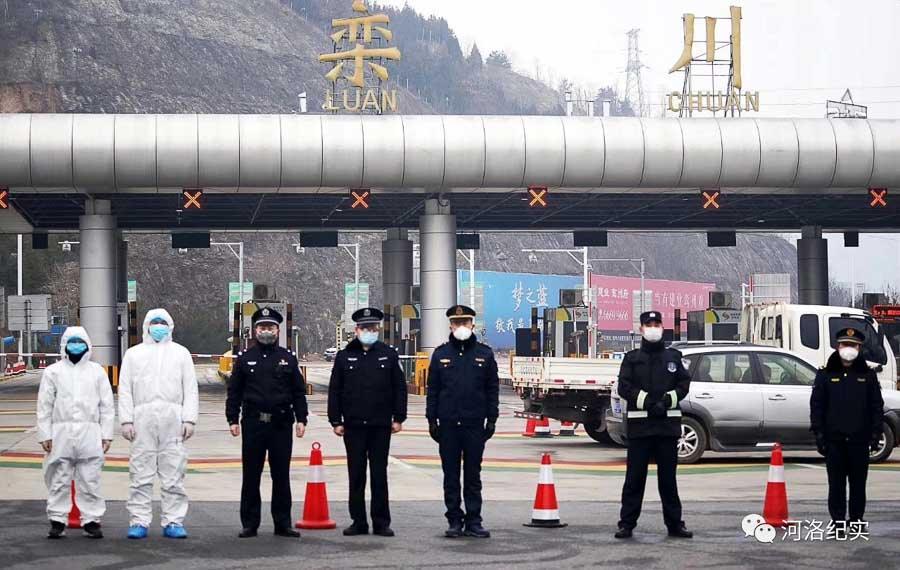

What’s it like living in China under the coronavirus lockdown?
Unless you have been living under a rock for the past two months, you will be aware of the ongoing coronavirus (COVID-19). The crisis that first gripped China and now has the rest of the world in its sights. Although cases had been reported in December 2019, it wasn’t until midway through January 2020 that most people in China became aware of the situation. Many people – myself included – were away on holiday for the Chinese New Year. As an English teacher living and working in China, I will recount travelling back home during the height of the epidemic and what life has been like while under the coronavirus lockdown.
Tibet

I was travelling in the wild region of Tibet when I first became aware of the coronavirus outbreak. It was (and still is) the safest place to be at the time. The whole region suffered only one case which has since been cured. As I was on my way to Mount Everest Base Camp, news filtered through about cities going on lockdown, and many of us on the tour started to worry about getting back to our respective homes in China.
Many friends messaged me advising to stay in Tibet, and although I would have loved to have spent more time in that magical land, due to the political situation its only possible to visit on a strictly supervised guided tour. My Tibet Travel Permit was only valid for 8 days, and thankfully my train from Lhasa to Xi’an hadn’t been cancelled, which could have presented several problems.
The Journey Home

I’ve travelled on Chinese trains frequently over the past five years, but I had never experienced a journey with so few people. I had the entire cabin to myself as the train trundled across the Tibetan plains at 5,000 metres (16,500 feet). I seemed to be the only person on board without a face mask, but because there were so few people and I was coming from a place with no reported cases at the time, I didn’t feel particularly concerned.
After 22 hours on the world’s highest railway, I arrived in Xi’an; a city I was very familiar with. The usually packed streets were empty of tourists and locals alike. I had hoped to grab a bite and a pint of beer at one of my favourite local bars but alas, everything was bolted closed. Even trusty McDonalds was shut so things must have been bad! I settled for some snacks from a 24-hour supermarket and headed back to my hotel.
The last leg of my journey was a quick 90-minute bullet train ride back to my city of Luoyang. Local chat groups were buzzing with lots of information and it was difficult to see what was true and what wasn’t.
‘My worry was not being able to make it home as some cities had closed all access in and out, but I was lucky that trains were still running.’
When I arrived at the unusually empty station, I had my temperature checked by a masked man in a plastic suit. I was allowed through and grabbed a taxi the final 15 minutes home. At the entrance to my apartment complex the gates were shut and security took my temperature again before I was allowed home.
Life Under Coronavirus Lockdown
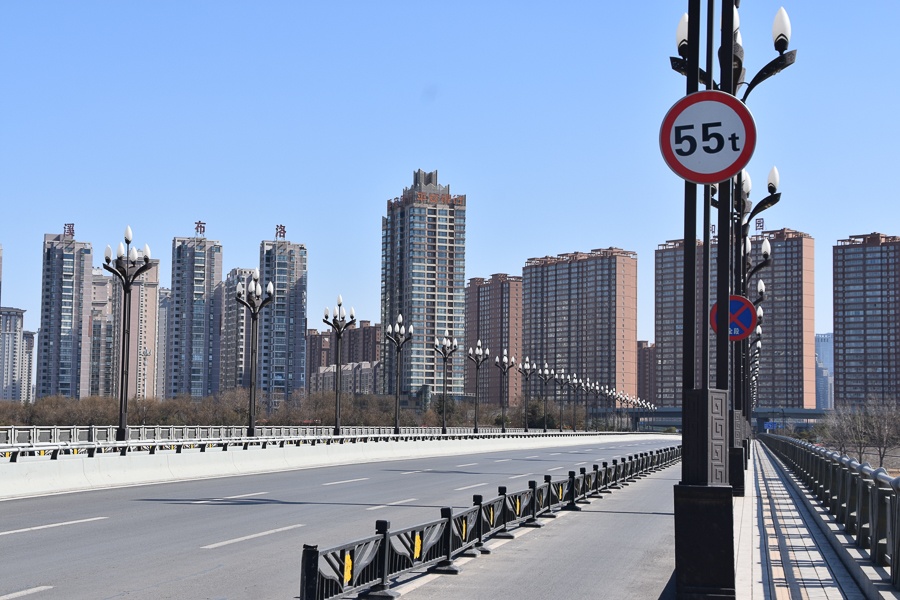
It was now late January and the situation deteriorated quickly. My province of Henan borders Hubei and Wuhan and we have consistently had the third highest number of cases in China.
Friends and colleagues who arrived back from their own winter holidays a few days after me were quarantined for 14 days. Thankfully I managed to avoid this. At first people were asked to self-isolate at home but now anyone returning is put up in a dingy hotel for 2 weeks, or those with a temperature, an isolation ward.
As an English teacher at a local school, obviously my work has been cancelled. I’ve been stuck at home for almost six weeks now watching things unfold. When I first arrived home, things seemed relatively normal but as each day went on, new instructions from the government were issued.
‘The security guards at the gate were replaced by police and people were forbidden to leave their apartments for more than two hours per day to get essential supplies.’
One evening I received a text message telling me to stay indoors as the authorities would be disinfecting the city. Residents were instructed to keep all doors and windows closed for two nights as water cannons went up and down the city spraying disinfectant. It felt quite surreal and although I hadn’t been worried too much, it was a little disconcerting. Still, these are the sort of experiences I usually seek out (like visiting Chernobyl or North Korea) so it’s been extremely interesting to live through first hand.
Empty Streets
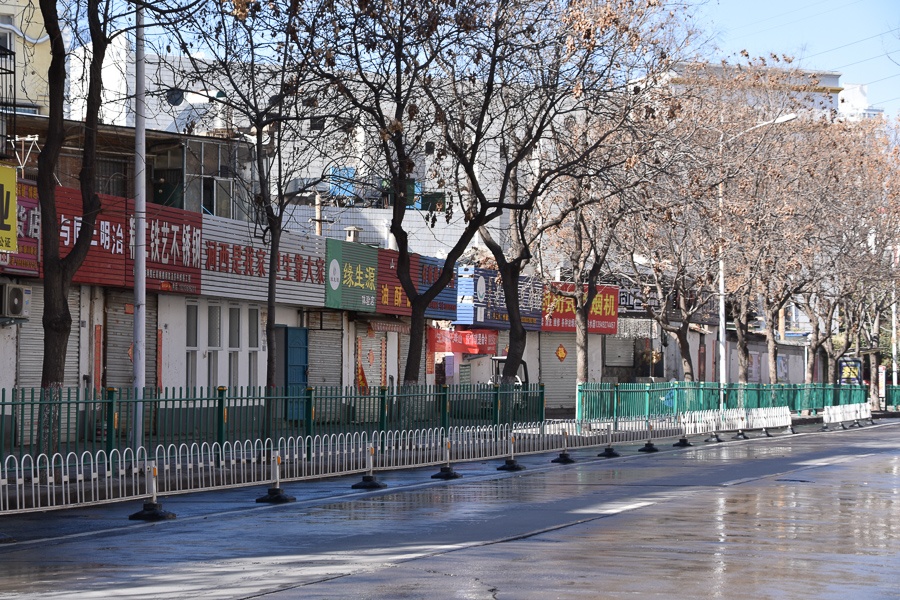
For two or three weeks the streets have been deserted. I have managed to get out on my bike a few times just to try and keep sane. I’ve told the guards I was going to the supermarket and instead rode around the empty streets, taking a few photographs to document the post-apocalyptic feel of the place.
I haven’t been too worried about the virus as a (relatively) healthy 30-something. My main worry has been panic-buying and a lack of access to food and water. The supermarkets have remained relatively well stocked. However, fresh produce is hard to come by and the shelves are looking quite bare now.
That being said, things seem to be returning to normality with the parks and department stores now open again. When the schools will open is another thing. I am being paid 50% salary for February and March, but will have to start looking at my options as the end of March draws near.
Advice to those traveling during the Coronavirus outbreak
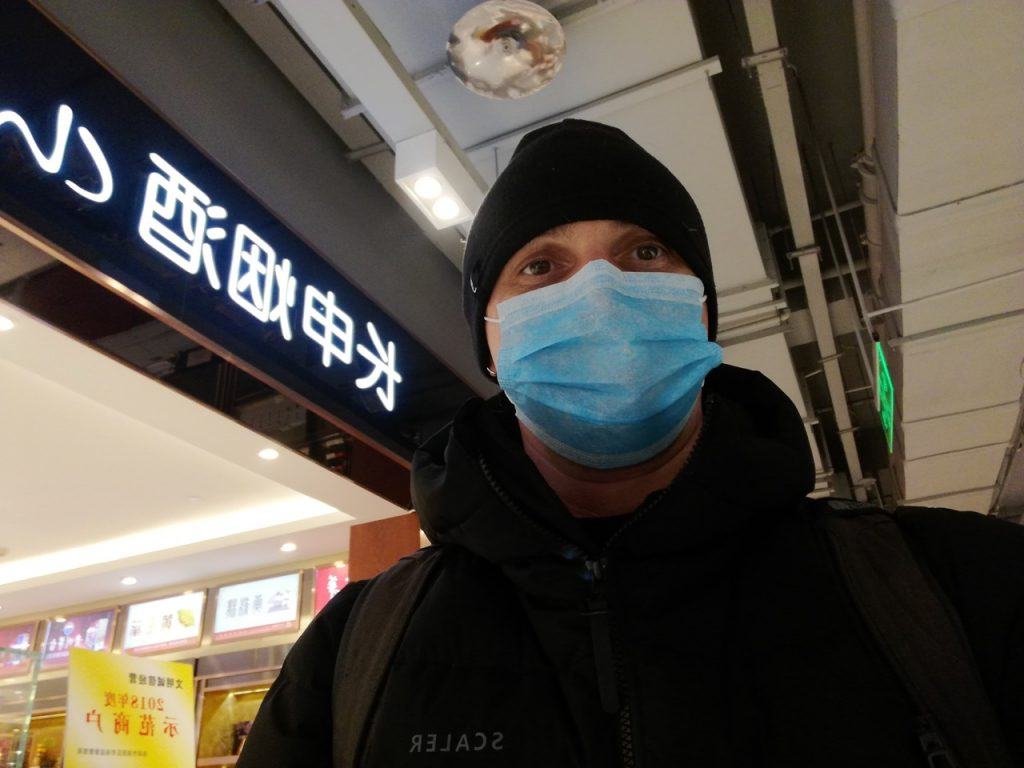
For those with trips to China booked for the following few months, my advice would be to cancel, unfortunately. Although things seem to be slowly returning to normal, all main tourist attractions and restaurants are closed for the foreseeable future. Many hotels are not accepting guests who have come in from other cities and countries. So your stay would be wasted. Check your insurance to see if you are covered, but be aware of force majeure (“act of god”) exclusions.
If you are planning on visiting east or southeast Asia:
1. Check your embassy website and local news outlets as things are ever-changing.
2. Avoid countries and areas that are experiencing a rise in confirmed cases like Iran and northern Italy.
Precautions to take
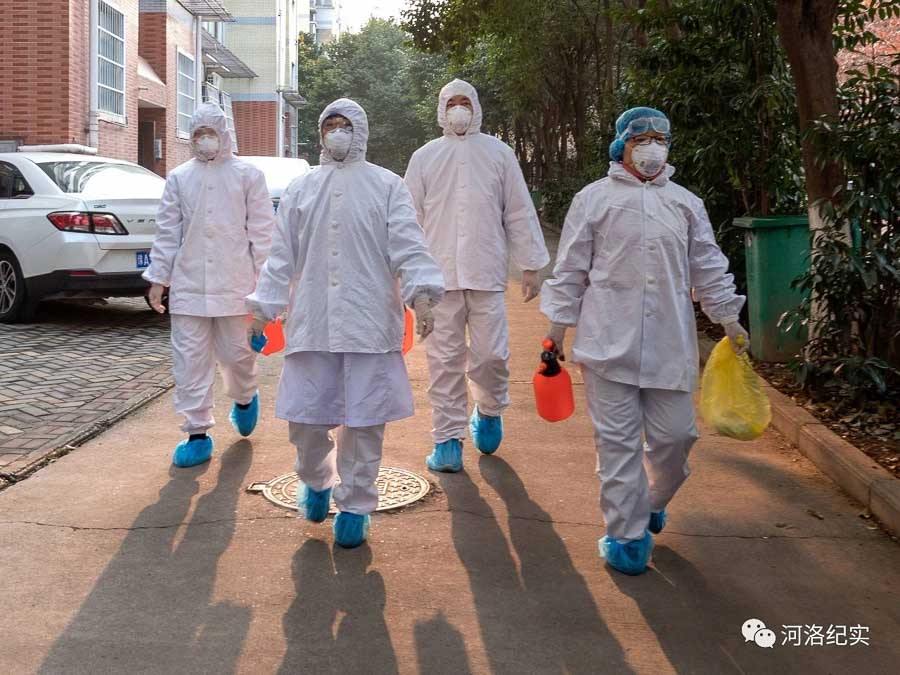
Photo credit: Li Yongjian
If you are traveling, and there is no reason to cancel trips where there is no major outbreak, then be sure to take a few simple precautions. Such as:
1. Washing hands often
2. Wiping your phone with antibacterial wipes
3. Avoiding crowded places with lots of people in close confinement
It’s ironic that China is now restricting entry to try and contain the virus as other countries start to suffer more. The response here has overall been pretty effective and hopefully as the warmer weather comes cases will decline further. It’s been reported that the coronavirus is most effective at 8 degrees. People in countries with cooler climates should do all they can to minimize the risk. Meanwhile, time will tell how quickly China will recover fully.
Feature image credit: Li Yongjian
Last updated on Mar 10, 2020Have you subscribed to our Newsletter or Podcast? Listen to us on Apple Podcast and Spotify and follow us on Facebook, Instagram Twitter and YouTube.








